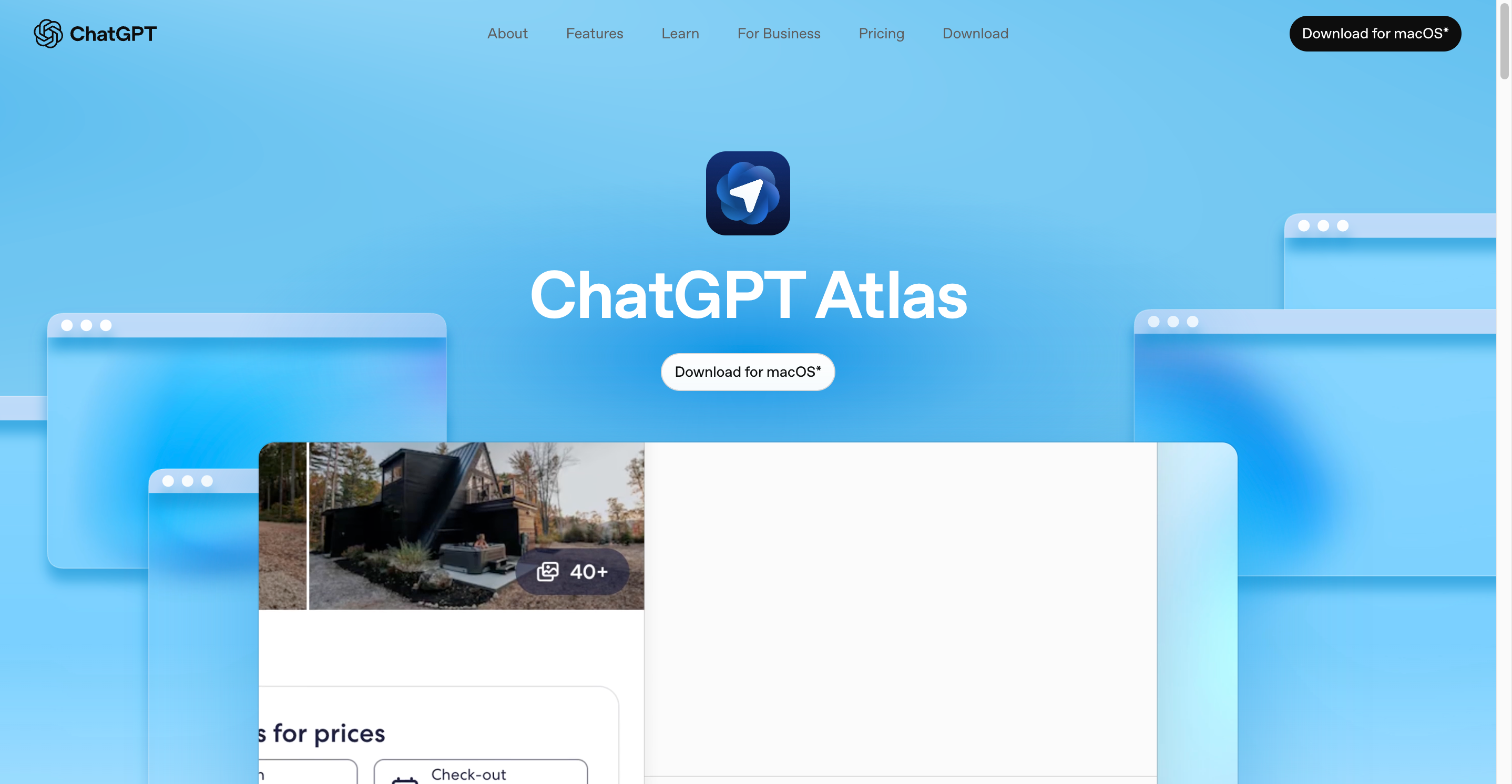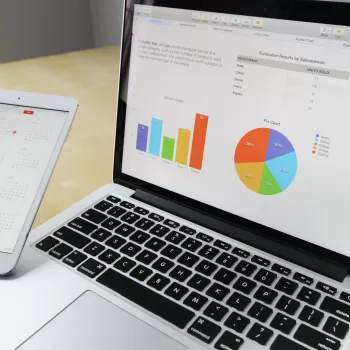A new AI-powered web browser has just been released by the makers of ChatGPT, and it’s already turning heads for how it reimagines the way people explore the internet. Unlike traditional browsers, this one doesn’t rely on a simple search bar or long lists of links. Instead, it uses artificial intelligence to help you find, summarize, and act on information faster – all through natural conversation. In this article, we’ll explore what this new browser is, how it works, and what it means for the future of searching online.

What Is This New Browser and What Makes It Different?
The new browser, called Atlas, is built entirely around artificial intelligence. Instead of typing a web address into an address bar, users interact with ChatGPT directly – the chatbot serves as the main gateway to the internet. When you open a new tab, you’re greeted not by a search box, but by ChatGPT, ready to answer questions or perform tasks.
The idea behind Atlas is to make browsing feel more like having a conversation. Rather than typing keywords into a search engine, you can simply ask something like, “Find a few good Italian recipes for dinner tonight,” and the browser will gather and organize results automatically. In other words, Atlas replaces the old “type-and-click” model with an “ask-and-act” approach.
How Does It Change the Way People Search Online?
Atlas doesn’t just show you search results – it interprets what you want and gets right to the point. When you ask a question, the AI scans relevant web pages, summarizes key information, and delivers clear answers instead of a list of blue links. This makes it faster and easier to get direct, useful results.
For example, if you ask, “What are the best hotels in Chicago under $200 a night?” you won’t have to scroll through endless reviews and ads. The AI will check multiple sources, summarize the top-rated options, and present them in one place. It’s like having a digital assistant built into your browser – one that understands both your question and the context behind it.
This shift also reflects a broader trend in how people use the internet. Reports show that nearly 6% of desktop searches now happen through large language models – double what it was just a year ago. More people are beginning to rely on AI to handle research, planning, and even decision-making.
What Is Agent Mode and How Does It Work?
One of the most talked-about features of Atlas is its experimental “Agent Mode.” This feature allows the AI to perform online tasks for you, almost like a virtual assistant that can take the wheel.
For example, imagine you’re planning a dinner party. You could tell the browser, “Find three simple dinner recipes for six people, order the ingredients for delivery, and create a music playlist for the evening.” Once you hit enter, Agent Mode will start searching for recipes, checking ingredient lists, adding items to an online shopping cart, and suggesting a playlist to match.
While it’s still early in development, Agent Mode gives a glimpse into a future where people don’t have to manually click through dozens of pages. Instead, the AI can handle multi-step actions while you supervise or make final choices.
Does Atlas Still Let You Visit Regular Websites?
Yes, absolutely. Even though Atlas removes the traditional address bar, you can still visit any website by typing its address directly into the chat window. The difference is that you’re doing it in conversation with ChatGPT, not through a static search bar.
This design makes the experience more fluid. Instead of switching between tabs or copying text from one site to another, you can ask ChatGPT to summarize, rewrite, or compare content directly within the page you’re viewing. For example, if you’re filling out a form or writing an email in the browser, you can ask the AI to reword your message without leaving the page.
Why Did the Developers Build It This Way?
The creators of ChatGPT designed Atlas to rethink what a browser could be in the age of AI. They saw an opportunity to merge search, browsing, and productivity into one tool powered by conversation.
During its introduction, company leaders described it as a “once-in-a-decade” chance to reinvent how people interact with the web. The main idea is to move away from endless clicking and scrolling, and toward more natural, context-based interaction.
In other words, Atlas aims to make the internet feel less like a maze of pages and more like a helpful dialogue.
How Does Atlas Handle Everyday Browsing Tasks?
Atlas is still capable of everything you’d expect from a normal browser – you can check email, stream videos, shop online, or read the news. But its AI integration makes each task smoother.
Let’s say you’re researching a topic for work or school. You can ask ChatGPT to summarize several web pages at once, extract key points, and even compare opposing viewpoints. You can also use it to rewrite text, draft replies, or proofread what you type online.
This kind of built-in assistance reduces the need to juggle between tabs, copy-paste information, or open separate editing tools. Everything happens within one interface, saving both time and effort.
Is Atlas Available for Everyone Right Now?
For now, Atlas is only available on computers running macOS, but the company has said it plans to release versions for other operating systems in the future. Agent Mode – the tool that lets the AI perform tasks automatically – is currently available only to paid subscribers. However, anyone can download the basic version of Atlas for free and start using it for everyday browsing.
This gradual rollout helps the developers test and refine the technology before expanding it to a wider audience.
How Do Experts View This New Browser?
Analysts and tech observers are watching Atlas closely. Some believe it represents a major step forward in how we’ll use the web, while others think it will take time for people to adjust.
Traditional browsers like Chrome and Safari are deeply familiar to most users, and changing habits can be slow. Still, many experts agree that AI-driven tools like Atlas could reshape how we think about search engines altogether – moving from typing to talking, and from browsing to doing.
The big question is whether Atlas can gain enough users to challenge established browsers. But even if it doesn’t replace them outright, it’s already pushing the industry toward a more conversational, context-aware future.
What Does This Mean for the Future of the Internet?
If Atlas and other AI-powered browsers succeed, searching online could soon feel completely different. Instead of typing exact phrases or clicking through multiple links, you might simply describe what you need – and let AI handle the details.
For businesses, this change could also transform online visibility. Traditional SEO strategies that focus on keywords might evolve toward optimizing content for conversational AI, ensuring that sites are easily understood and summarized by intelligent systems like ChatGPT.
That means businesses may need to adapt how they present information, structure their websites, and design content for AI-driven discovery.
Want To Learn How This Shift Could Impact Your Website?
As AI changes the way people find information online, search engine optimization is evolving just as quickly. If you want to stay ahead, it’s important to make sure your website is ready for how people – and AI – now explore the web.
Contact the online marketing experts at DigitalParc today to learn how we can help you strengthen your website’s visibility, improve your SEO, and prepare your business for the future of AI-powered search.







